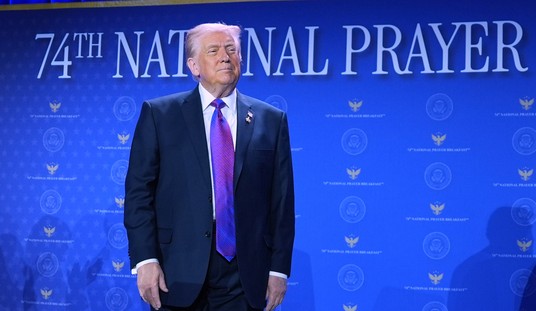Thorny question for the Court: When a group applies to sponsor a license-plate design that the state considers offensive, does the state have the power to say no? If it doesn’t then the state is arguably being forced to endorse a message it disagrees with. If it does then the state is arguably discriminating against the group based on its viewpoint, a supreme no-no in free-speech jurisprudence. In other words, are license plates an example of “government speech” or are they an example of individual speech which government has no authority to censor?
The result was a classic 5-4 decision. Four liberals on one side, four conservatives on the other, and the deciding vote cast by the famously squishy moderate … Clarence Thomas.

That’s from Breyer’s majority opinion, joined by Thomas, making the case that plates are indeed “government speech,” which means the state can pick and choose the message it wants to convey. The way you can tell it’s government speech, Breyer says, is by the fact that many drivers prefer custom vanity plates even though they could convey the same message with a bumper sticker. It’s the government’s imprimatur that makes using the plate to carry your message special, in which case the state should have a say in whether it wants to be used to help broadcast that message. Besides, if you set a new rule in which the state is required to give every viewpoint a forum whenever it wants to say something then you’re setting yourself up for absurdities. E.g., if the state wants to send out a mailer encouraging people to recycle, would you force them to print a message from the local dump at the bottom that reads “RECYCLING IS STUPID”? The government has to be able to tailor its message when it has a message to convey or else it won’t be able to communicate effectively.
Nonsense, says Alito, writing for himself, Roberts, Scalia, and Kennedy in dissent. License plates have nothing to do with “government speech.” They’re little billboards that the state has erected. Why should some members of the public be able to use those billboards while others can’t?

We’re suddenly on a slippery slope, writes Alito. I’ll give you the first slip on that slope too: After reading this, it’s hard to see why D.C. metro can’t ban Pam Geller’s Mohammed-cartoon ads from its ad space in subway stations. Geller won a decision in federal court last year against Philadelphia’s transit authority that doubtless weighed heavily on D.C. when it considered whether to approve her new ad. In the end the city decided to discontinue all public-issues advertising through the end of the year in order to avoid having to let Geller post her ad; that way, they can claim they weren’t discriminating against her specifically even though her application was obviously the impetus for the new policy. After this new ruling, maybe they’ll bring back issue ads while rejecting Geller’s. The question, I assume, would be whether an ad that appears in a government-owned and -operated facility is, or should be, seen by passersby as carrying the government endorsement. If so, then the ad is a form of “government speech” even though the content is sponsored by a private entity.
As for Thomas, there’s an irony in his decision to join the majority here. Back when he was first nominated to the Supreme Court, one of the nastier attacks against him was that he had supposedly kept a Confederate flag in his office in Missouri. That wasn’t a Confederate flag, Thomas told Orrin Hatch; it was the flag of Georgia, his home state, the design of which incorporated elements of the old Confederate flag. His accusers said in hindsight that they couldn’t be sure which flag it was, but the point was clear — Thomas, the phony black man and Uncle Tom, hated his own race so much that he kept a memento of a slave regime around. Twenty-five years later, here he is siding with the Court’s liberals in recognizing Texas’s authority to ban symbols of the Confederacy from license plates.








Join the conversation as a VIP Member